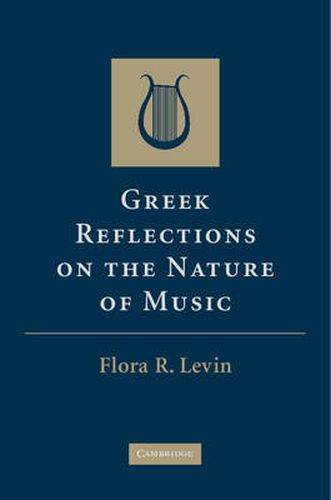Readings Newsletter
Become a Readings Member to make your shopping experience even easier.
Sign in or sign up for free!
You’re not far away from qualifying for FREE standard shipping within Australia
You’ve qualified for FREE standard shipping within Australia
The cart is loading…






Flora Levin explores how and why music was so important to the ancient Greeks. She examines the distinctions that they drew between the theory of music as an art ruled by number and the theory wherein number is held to be ruled by the art of music. These perspectives generated more expansive theories, particularly the idea that the cosmos is a mirror-image of music’s structural elements and, conversely, that music by virtue of its cosmic elements - time, motion, and the continuum - is itself a mirror-image of the cosmos. These opposing perspectives gave rise to two opposing schools of thought, the Pythagorean and the Aristoxenian. Levin argues that the clash between these two schools could never be reconciled. Her book shows how the Greeks’ appreciation of the profundity of music’s interconnections with philosophy, mathematics, and logic led to groundbreaking intellectual achievements that no civilisation has ever matched.
$9.00 standard shipping within Australia
FREE standard shipping within Australia for orders over $100.00
Express & International shipping calculated at checkout
Flora Levin explores how and why music was so important to the ancient Greeks. She examines the distinctions that they drew between the theory of music as an art ruled by number and the theory wherein number is held to be ruled by the art of music. These perspectives generated more expansive theories, particularly the idea that the cosmos is a mirror-image of music’s structural elements and, conversely, that music by virtue of its cosmic elements - time, motion, and the continuum - is itself a mirror-image of the cosmos. These opposing perspectives gave rise to two opposing schools of thought, the Pythagorean and the Aristoxenian. Levin argues that the clash between these two schools could never be reconciled. Her book shows how the Greeks’ appreciation of the profundity of music’s interconnections with philosophy, mathematics, and logic led to groundbreaking intellectual achievements that no civilisation has ever matched.